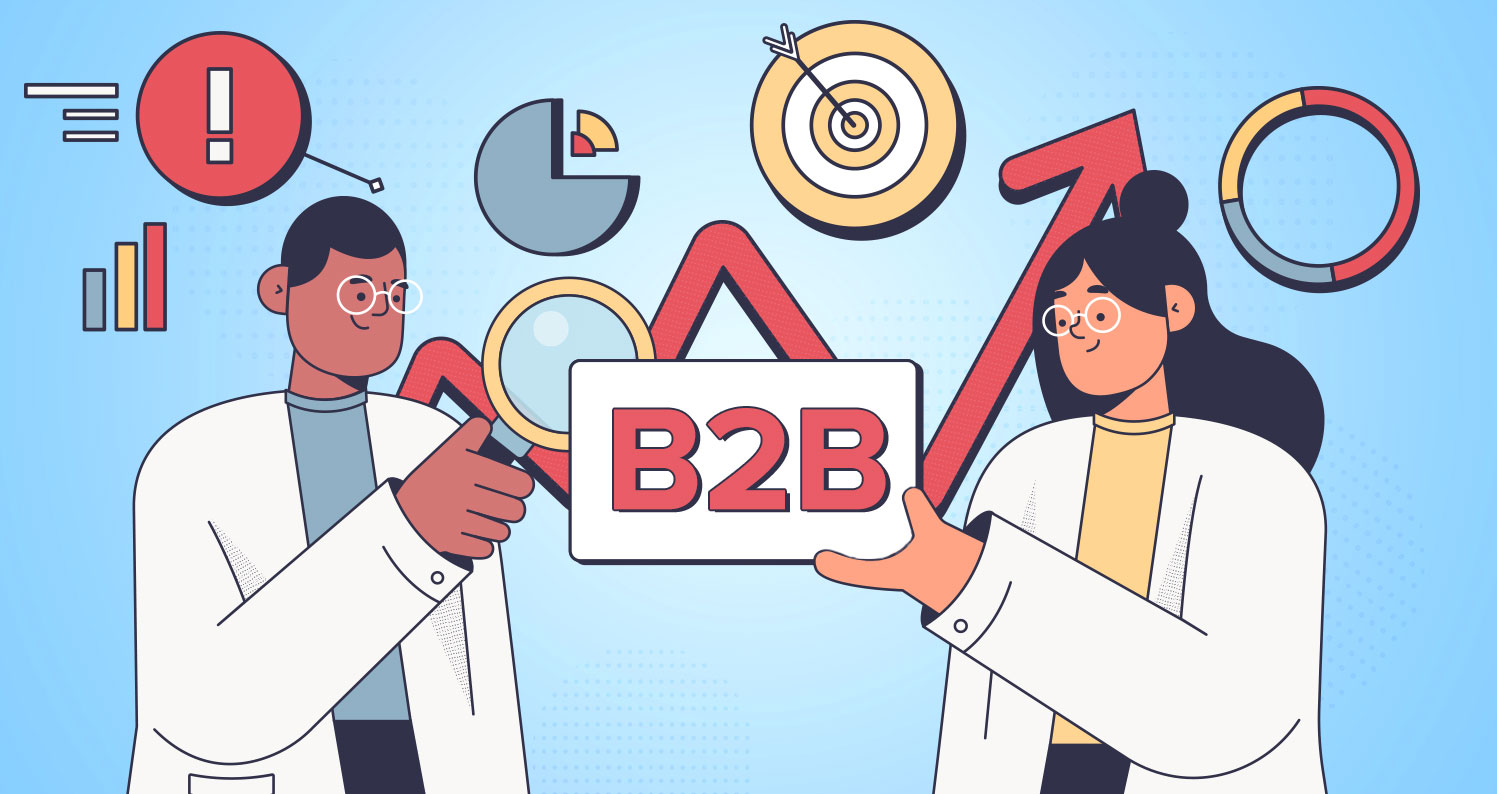B2B Affiliate Marketing: An Introduction
Affiliate isn’t just for direct-to-consumer brands. This guide explains how B2B companies are using the channel to grow smarter—not just faster.

Affiliate marketing is a performance-based channel built around relationships between a brand and its affiliates (often called “partners”). These partners promote the brand’s products or services in exchange for compensation tied to results, such as leads or sales.
Most people recognize affiliate marketing in the B2C space, where businesses collaborate with partners to drive direct-to-consumer sales. But the same model can support growth in B2B, where relationships and decision cycles are more complex.
To understand B2B affiliate marketing, it helps to understand how the affiliate channel works overall. If you’re new to the concept, check out this article: What’s Affiliate Marketing?
What is B2B Affiliate Marketing?
B2B affiliate marketing applies the core principles of the B2C model to business-to-business transactions, adapted to accommodate longer buying timelines and more selective audiences. It gives companies another lever to scale pipeline without leaning on expensive outbound or generic lead-gen.
With digital buying behavior now the norm, B2B buyers often look for recommendations, reviews, and expert validation before they ever talk to a sales rep. Affiliate marketing meets them in that moment, using trusted partners to promote your offer.
When executed well, B2B affiliate programs can be a cost-efficient, scalable way to grow pipeline and build credibility. Even in uncertain economic conditions, affiliate offers a flexible and accountable path forward.

Affiliate partners power the analytics and insights that fuel smarter B2B decisions.
How does B2B affiliate marketing compare to B2C?
Both B2B and B2C affiliate programs aim to convert prospects into buyers, but they operate in different environments.
Buyers & Timelines
B2B buyers are evaluating long-term solutions with multiple stakeholders involved. Their decisions revolve around ROI, integration with internal systems, and total cost of ownership.
Think of an IT director researching cybersecurity platforms or a procurement team comparing software vendors. The process can stretch across weeks or months, with demos, budget approvals, and negotiations.
B2C buyers move faster. They’re individuals acting on personal needs, often driven by price, convenience, or emotion. A purchase might follow a quick review scan or limited time offer. The decision is typically made solo and finalized within minutes or hours.
Marketing Strategies
B2B marketing leans on educational content, industry insights, and data-backed storytelling. The goal is to show decision-makers that you understand their pain points and can offer real solutions.
B2C marketing taps into emotions, trends, and lifestyle aspirations. It speaks the customer’s language and positions products as ways to solve personal problems or enhance daily life.
Customer Relationship Experiences
B2B relationships often include onboarding, long-term support, and a need for custom solutions. These relationships are built over time and depend on trust and results.
B2C loyalty can be strong too, but it often hinges on product satisfaction, convenience, or brand affinity. Loyalty programs and emotional resonance play a big role.

Affiliate partnership drives B2B impacts through content, analytics, and lead generation touchpoints.
How can affiliate marketing benefit B2B brands?
Affiliate can deliver on three fronts: cost control, credibility, and scalability.
- Cost control: You only pay for performance. For high-ACV or slow-conversion funnels, this keeps budgets focused on what works.
- Credibility: Partners lend trust, not just traffic. Consultants, creators, and publications validate your offer before a sales rep enters the conversation.
- Scalability: You can test different partner types and offers, then reinvest in what converts. No waste, no guesswork.
1. Content & Review Sites
Editorial publishers write product reviews, comparisons, and guides that help buyers evaluate solutions. Their audience trusts them to provide accurate, helpful content. With the right partnership, these sites can drive qualified traffic that converts.
2. Industry Professionals & Thought Leaders
Consultants, analysts, and well-known experts often have the attention of decision-makers. When they promote a product they trust, it carries weight. These partnerships build credibility in a way few other tactics can.
3. Lead Generation Specialists
These affiliates specialize in reaching niche audiences and capturing interest. Whether through paid search, email, or gated content, they focus on surfacing prospects who are ready to talk. For B2B programs, they can be a source of high-quality leads.
Does affiliate marketing work for small B2B brands?
Affiliate gives smaller B2B brands a way to punch above their weight. With the right partners, even early-stage companies can gain visibility, build credibility, and capture leads without burning through ad budgets.
Startups and emerging companies often struggle to gain visibility or compete with bigger players. Affiliate partners can help you reach the right buyers by tapping into their existing trust and audience.
It takes time to build relationships and optimize performance, but the payoff is there. A strong affiliate program doesn’t replace a full B2B marketing approach, but it fills gaps that traditional channels may miss.
If you’re launching a new B2B affiliate program, working with the right agency can accelerate success. Gen3 has helped dozens of B2B brands scale quickly with customized programs that match their goals.
Thinking about launching a B2B program or scaling what you’ve started? Contact us today to speak with an expert in B2B affiliate marketing.
More Blogs
B2B Affiliate Insights & Strategies for 2026
We review what still works for B2B brands along with ways to optimize the customer journey from an affiliate marketing perspective.B2B affiliate programs are changing fast. What used to be a simple traffic-to-lead model no longer reflects how B2B buyers actually...
AI Affiliate Marketing Strategies: Winning In The AI Era
The debate continues: Is AI a blessing or a threat to the affiliate world?On one hand, AI is making shopping faster, search results smarter, and product research more personalized. On the other hand, AI is changing how users discover content and, in some cases,...
Ecommerce Search Optimization Checklist
Get your online store SEO, GEO, and AEO ready with this helpful checklist from a digital search expert.The ecommerce landscape is changing fast. Search engines now blend traditional ranking signals with AI-generated answers, localized results, and real-time product...

 By
By 

